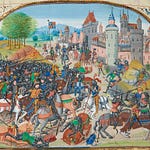Originally published on April 17, 2023 (Episode 313)
Introduction
What is intellectual humility when you measure it in the lab and trace it across cultures? Social psychologist Igor Grossmann studies how people make sense of the world—our lay theories, forecasts, and meta-cognitions—and how culture shapes those habits.
In this episode we connect his research to historical thinking: why acknowledging limits improves reasoning; how humility relates to open-mindedness, perspective-taking, and “wise reasoning”; and what the data say about its predictors and consequences. We explore expert overconfidence (hello, prediction markets), the replication crisis and reforms (pre-registration, open data), and practical ways to build humility into classrooms and public life: dialectical prompts, forecasting games with feedback, and structured disagreement. If you’ve wondered how to teach humility without preaching it, here’s an evidence-based toolkit.
About the Guest
Igor Grossmann is Associate Professor of Psychology at the University of Waterloo and Director of the Wisdom and Culture Lab.
For Further Investigation
Tenelle Porter et al., “Predictors and consequences of intellectual humility”
Brian Nosek on the Reproducibility Lab (conversation with Russ Roberts on EconTalk)
💬 Listen & Discuss
Which classroom or meeting habit most encourages humility—asking for counter-evidence, forecasting with scoring, or debating from the other side? What would it look like to add one of these practices this week?











